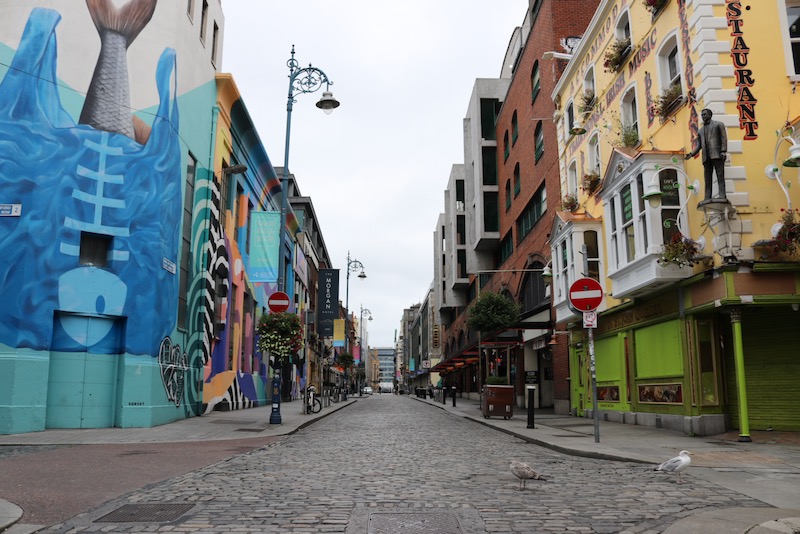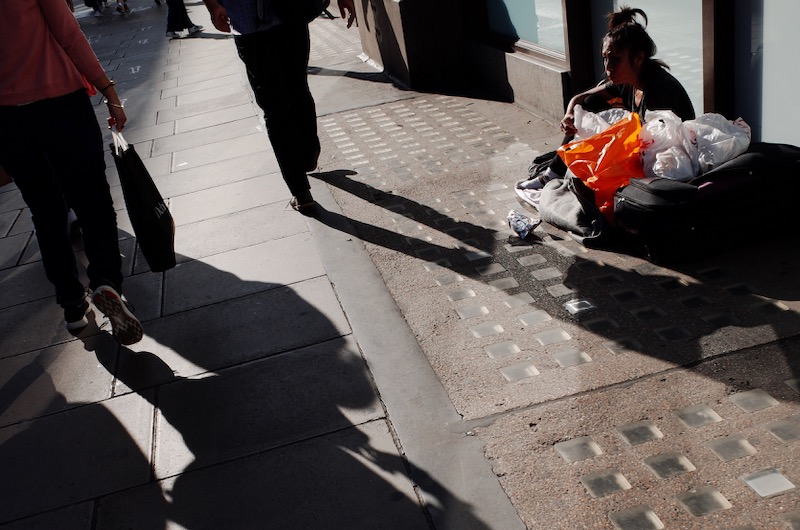The end of the government’s furlough scheme, “will take many people into unemployment and debt, and increase the number people who are homeless,” director of Caritas Salford, Mark Wiggin, told The Tablet this week. “Without a living minimum basic income many new people will face poverty,” he warned.
He felt that, combined with reductions in front line local authority services still being felt, the six week wait to transfer benefits to Universal Credit and then the sanctions imposed for defaulting on their regulations, there is a hostile environment to anyone unable to speak up for themselves or who is not technologically literate.” Latest statistics show that one in every four children in Greater Manchester is now living in poverty, despite some having one or more of their parents working.
Caritas Salford kept open all its services during the pandemic and found that “more people than ever have sought our services especially for emergency food and benefits advice.” People who experience mental health issues and are in desperate need of face to face appointments with their mental health workers are particularly at risk. The Cornerstone Day Centre for Homeless people in the diocese is providing showers and laundry, and helping homeless people get a change of clothes and footwear as well as providing regular access to food. Some homeless people are in jobs but cannot afford accommodation.
“With every church in the country closed due to the pandemic, it has been left to the Catholic charities to step up and put faith into action,” said Mr Wiggin. He added that, “their work on the front line of poverty has been a credit to the Church and if there is one lesson I hope we can all take forward from this pandemic is that the impact of Covid-19 has confirmed that there is an urgency for the Church to invest in a new pastoral imperative to serve the poor and the best way to do this is through further development the Caritas diocesan network of social action charities.” He acknowledged that a gift in June from the Albert Gubay Charitable Foundation of £1 million helped Catholic charities cope with the demand.
St Antony’s Centre in Salford Diocese has offered training support throughout lockdown. Director Kevin Flanagan said recently on Twitter: “The World of Work is seeing the biggest restructure since the 80’s with lots of dedicated, hard-working employees being told they are redundant;” He added: “People are hurting and we are here to help.” New fully funded courses starting this month include Functional Skills in Maths and English.
The Cardinal Hume Centre in Central London also offers skills training and preparation for people seeking employment and a way out of rough sleeping. There is a huge increase in demand, reports its website and “people who had jobs are now uncertain if they will still have one tomorrow and families are coming to terms with losing their income and the worry of how to pay the bills.” The centre says that, “living in Westminster is tough for people who are in unstable work or in insecure housing,” and it offers free advice to put people “back in control.”
Caritas Westminster reports that some schools are continuing to run foodbanks on their premises for the local community to use. David O’Farrell, Headteacher at St Bernadette’s in Kenton, started a foodbank at the school five years ago, but since the pandemic he has seen a big increase in the number of people using it. St Elizabeth’s in East London has also opened its own foodbank. Tracy Jennings, the Deputy Head, reports that schools are perfect locations for foodbanks as they often know who is in need and are well placed to support their community.
Caritas Westminster says that although many children heading back to school will receive free hot meals again, this will not be the case for families with No Recourse to Public Funds. During the pandemic the Government extended Free School Meals vouchers to families whose immigration status means they are not entitled to essential welfare support, but this provision ended as term started. Caritas Westminster has joined with 60 other organisations to write to the Education Secretary to call for Free School Meals to be permanently extended to these families, ensuring children do not suffer because of their parents’ immigration status.
Caritas East Anglia held a webinar as lockdown was ending to encourage and promote on-going social action in the diocese and to follow Pope Francis’s request to “prepare the future”. Local leaders described how parishioners, inspired by Catholic Social Teaching, had set up new and adapted existing community food projects in Newmarket and Wymondham. In King’s Lynn, collaboration between local Christians and support from a worker had stimulated new support including debt advice, a food bank and a homelessness night shelter, which it was hoped would move to larger premises in the winter of 2020.
Many UK charities marked the UN Day of Charity on 5 September, encouraging further commitment from donors especially in the light of anticipated economic downturn. The Trussell Trust, which is widely supported by churches, commented on twitter that hunger in the UK isn’t just about food and foodbanks. It suggested that for a long-term solution, “we need to tackle the structural issues that leave people without enough money for the basics.”



 Loading ...
Loading ...